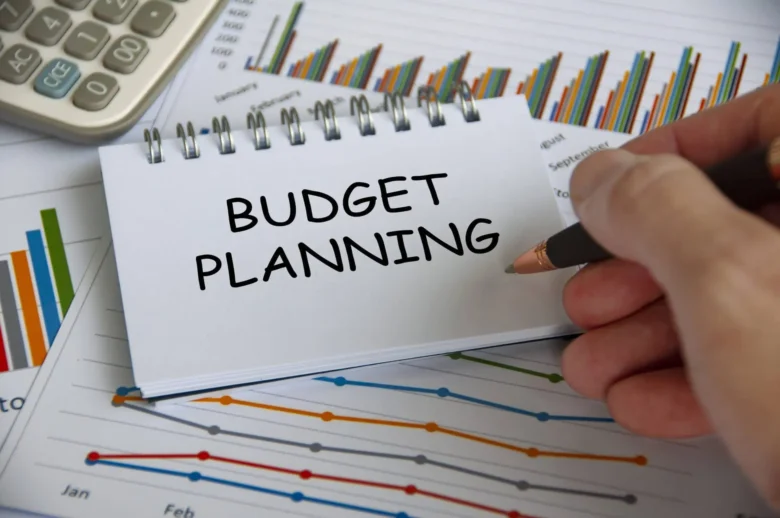Managing your money can be challenging, especially if you don’t know where your money goes each month. That’s when creating a budget becomes even more important. A monthly budget is one of the best ways to track your finances, prepare for your goals, and control your spending. Creating a reasonable monthly budget doesn’t have to be difficult or stressful. That’s not the point of a budget; it’s about gaining a clear understanding of your financial situation and making smart choices about how you spend and save. A basic budget can help you achieve financial stability, reduce stress, and consistently achieve your short-term and long-term financial goals.
Understand the Purpose of a Budget
A budget is a plan for how you spend your money over a set period (usually a month). A budget isn’t meant to restrict your freedom but rather to help you maintain discipline and clarity. A budget gives you clear insight into your income and expenses. This insight helps you avoid overspending and prioritize what’s truly important. Without a budget, it’s easy to overspend and wonder how much you’ve spent at the end of the month. A budget helps you make smart financial decisions and prevent money from slipping away unnoticed.
Track Your Income First
To create a monthly budget, you first need to understand your income. This includes your salary, freelance income, business income, or other regular sources of income. Understanding your income helps you set spending limits. If you overestimate your earnings, your budget might not be realistic. On the other hand, if your estimates are inaccurate, you may miss opportunities to spend more wisely and be too restrictive. A useful budget starts with accurate tracking of your income.
Calculate Your Monthly Bills
Once you understand your income, the next step is to look at your monthly expenses. Expenses fall into two main categories: fixed and variable. Rent, mortgage, utilities, and insurance are fixed costs that occur regularly and are easy to plan for. Variable expenses, such as groceries, dining out, entertainment, and shopping, can fluctuate from month to month. By closely monitoring your spending, you can better understand where your money is going. People are sometimes surprised at this stage when they realize how much they’ve wasted on unnecessary little things. Understanding these spending patterns is crucial for creating a successful budget.
Set Clear Financial Goals
A simple monthly budget isn’t just about paying bills; it’s about ensuring your spending aligns with your goals. Saving for an emergency fund, paying off debt, planning a vacation, or saving for retirement are all examples of financial goals. Your budget needs goals to give it direction and meaning. You can adjust your monthly spending to achieve your goals, such as saving a certain amount for a down payment on a house. Without clear goals, a budget can seem pointless, but with goals, every financial decision you make helps you achieve them.
Spend Your Money Wisely
After you understand your income, expenses, and goals, the next step is to determine how you’ll spend your money. A successful budget ensures that your money is allocated to your needs, wants, savings, and debt repayment. Some people adhere to strict budgeting guidelines, but as long as your monthly budget aligns with your values, it can be flexible. For example, you might decide to cut back on entertainment expenses to save more money. The key is to make well-informed choices that align with your needs, both now and in the future.
The Role of an Emergency Fund
An emergency plan is an essential part of any budget. Life is full of surprises, and you never know when you’ll have to pay for unexpected expenses, such as medical bills, car repairs, or job loss. An emergency fund acts as a safety net, protecting you from debt and disrupting your budget when something unexpected happens. It’s wise to set aside a small amount each month as an emergency fund. These small contributions accumulate over time, giving you peace of mind in any situation.
Avoiding Common Budgeting Mistakes
Many people make mistakes when creating a simple monthly budget, which can hinder their financial success. Overexerting yourself is a classic mistake, leading to frustration and ultimately abandoning the budget. Another mistake is not tracking small, everyday expenses like coffee or snacks, which can pile up over time. However, you shouldn’t overlook irregular expenses like vacations or annual insurance premiums, as these can still impact your overall financial planning. A good budget should account for both regular and unexpected expenses and be reasonable and flexible.
Conclusion
Creating a simple monthly budget is one of the best ways to manage your finances and become more independent. It helps you track your finances, plan your expenses, and spend money on the things that matter to you. A budget can provide clarity, prevent unnecessary debt, and give peace of mind. It requires effort, discipline, and regular adjustments, but the benefits are worth it. Creating a budget can help you save money, reduce stress, and start your journey to financial freedom.
FAQs
1. Why do I need a monthly budget?
A monthly budget can help you track your finances, stay within your means, and save for your financial goals. This reduces the risk of going over budget and falling into debt.
2. How much should I save each month?
Experts recommend saving at least 20% of your salary, but the specific amount depends on your financial situation and goals.
3. Is a budget only for high-income earners?
No, a budget is useful for everyone, regardless of income. It can help you maximize your income.
4. What if I overspend one month?
It’s possible to overspend. Rather than giving up, please take a moment to review your budget, identify any issues, and adjust your plans for the following month.
5. Is the budget flexible?
Yes, a reasonable budget can be adjusted. It should grow with your income, expenses, and goals, but it should also help you stay on track financially.



